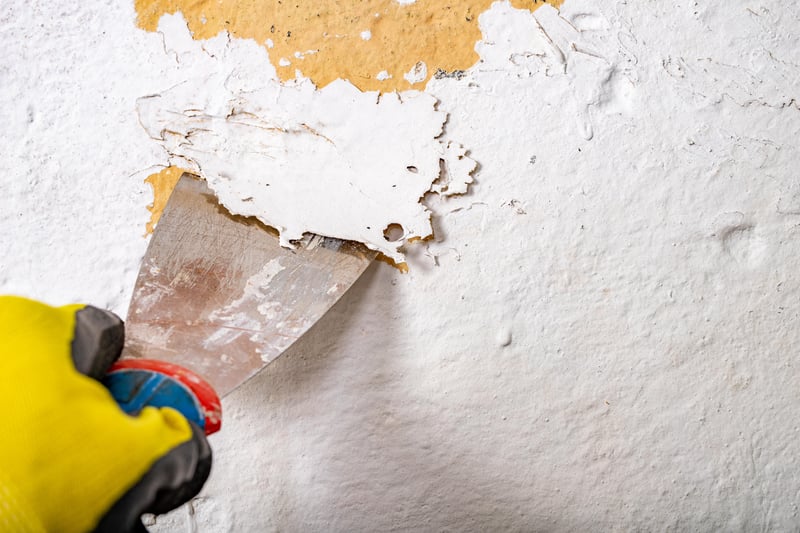Get Healthy!

- Cara Murez
- Posted July 12, 2023
EPA Toughens Lead Standards in Older Homes, Buildings
U.S. federal officials took a big step toward protecting children from a contaminant blamed for irreversible health effects, proposing tougher standards for removing lead-based paint in pre-1978 buildings and child care facilities.
The U.S. Environmental Protection Agency announced the proposed new standards Wednesday at an event in Newark, N.J. If finalized, the new rules would protect up to 500,000 children under age 6 from lead exposure each year. The proposed standards would apply to homes and child-care facilities.
"The Biden-Harris Administration is taking a whole-of-government approach to ensuring that the most vulnerable among us -- our children -- are protected from exposure to lead,"EPA Deputy Administrator Janet McCabe said in an agency news release. "This proposal to safely remove lead paint along with our other efforts to deliver clean drinking water and replace lead pipes will go a long way toward protecting the health of our next generation of leaders."
The plan is aligned with the EPA's aim to address racial, ethnic and economic disparities in lead exposure.
Lead-based paint is more likely to be found in lower-income areas, putting communities of color at greater risk. Racial segregation in housing over the years, called redlining, is part of this.
Michal Freedhoff, assistant administrator for the EPA's Office of Chemical Safety and Pollution Prevention, noted there is no safe level of lead.
"Even low levels are detrimental to children's health, and this proposal would bring us closer to eradicating lead-based paint hazards from homes and child care facilities across the U.S. once and for all,"Freedhoff said in the release.
The proposal has the potential to trigger lead removal in millions of buildings, according to the Washington Post. It is an outgrowth of a 2019 lawsuit filed by environmental groups, in which the U.S. Court of Appeals for the 9th Circuit ruled that the EPA must set its lead standard based only on health factors.
"EPA is finally proposing to do what the law requires, adopt truly protective lead standards,"Eve Gartner, a managing attorney at the groups' law firm, Earthjustice, told the Post. "This is a leap forward in the country's long-delayed efforts to eliminate lead exposures in millions of residences."
The proposed rule would strengthen EPA regulations that are part of the Toxic Substances Control Act (TSCA). It would revise dust-lead hazard standards and dust-lead clearance levels. These limit lead that can remain on floors and window sills after removal.
There is no level at which lead dust is safe for kids.
"When children are exposed to lead, their health can be irreversibly affected through impacts to their brain and nervous systems and delays in their growth and development," U.S. Sen. Robert Menendez, D-N.J., said in the release. "This is why I have fought tirelessly to ensure children across the U.S., and all Americans, are further protected from the dangers of lead exposure, especially those in underserved communities that are more likely to find lead-based paint and dust in their homes and neighborhoods."
Lead paint was banned for residences in 1978, but about 31 million homes built earlier may still contain lead-based paint. About 3.8 million of these homes have one or more children under age 6.
Lead-contaminated dust, caused when the paint is disturbed or deteriorates, is a common cause of elevated blood lead levels in children. Resulting health problems can include behavioral issues, lower IQ and slowed growth.
More information
The U.S. Centers for Disease Control and Prevention has more on the health effects of lead exposure.
SOURCES: U.S. Environmental Protection Agency, news release, July 12, 2023; Washington Post




